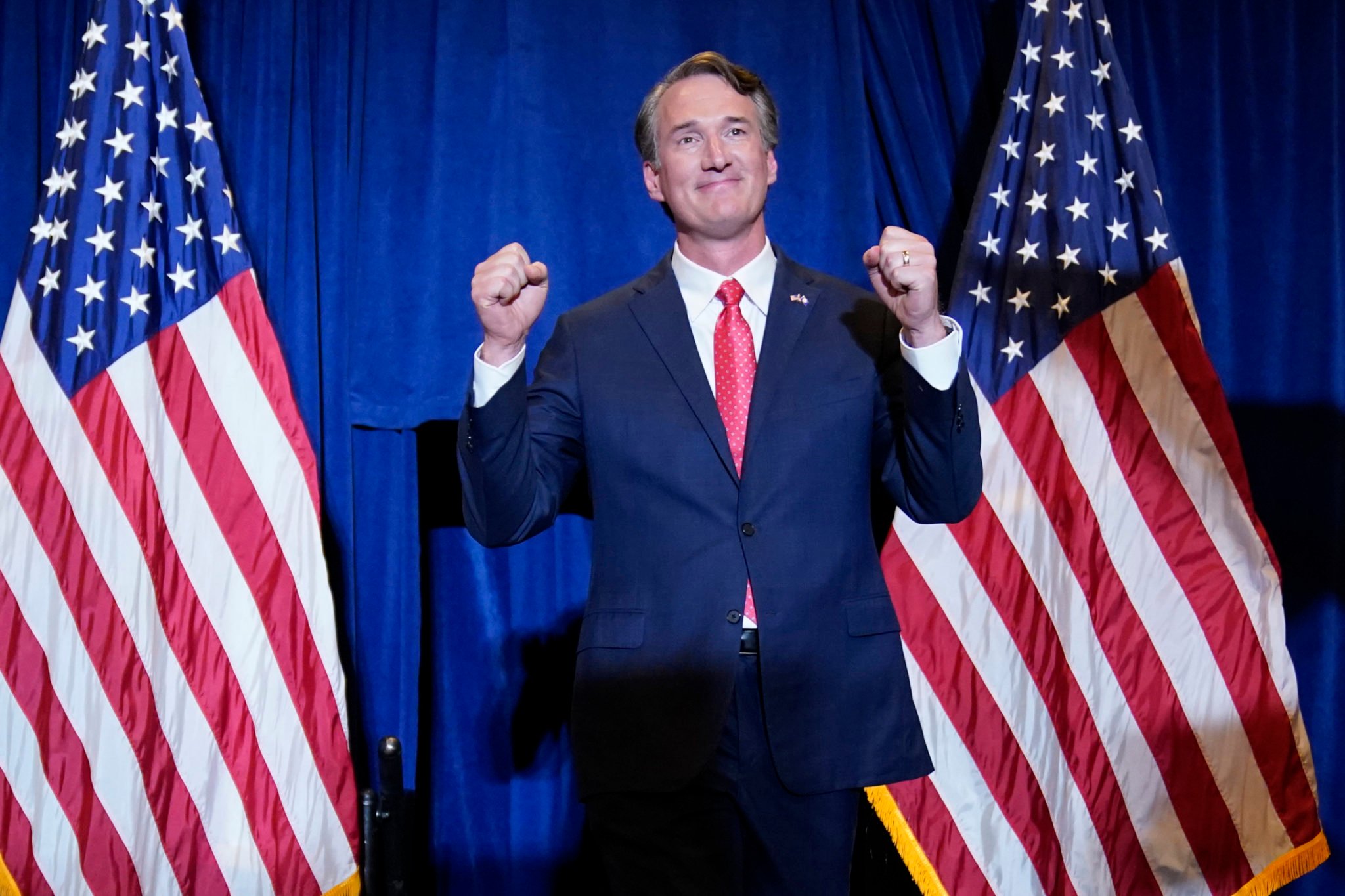Two words helped propel Terry McAuliffe to Virginia’s governorship in 2013: “transvaginal ultrasound.” That phrase derived from a GOP-led effort to impose new restrictions on abortion in the Commonwealth that got watered down after the state became a national punch line.
Last year, with control of the governor’s mansion and both houses of the legislature, Democrats eased those restrictions, and this fall Virginia expanded abortion rights, making the medications misoprostol and mifepristone available through the mail.
So what happens now that Glenn Youngkin, a pro-life candidate, bested McAuliffe to become Virginia’s next governor in a night that also saw Republicans possibly take over the Virginia House of Delegates? Youngkin, who successfully tacked toward the center of Virginia politics during the campaign, has not said a lot on how he’d enshrine his beliefs in policy. “When I’m governor, and I have a majority in the House, we can start going on offense” on abortion, he said in hidden-camera video earlier this year. He’s said he wouldn’t support a Texas-style bill and that he would support so-called “fetal pain” legislation but also that he supports exceptions to abortion restrictions in cases of rape and incest.
Abortion wasn’t a top issue for many Virginia voters for this election, but circumstances loom that could push it to the fore. Roe v. Wade may be overturned soon, which could make state policy very important. An effort to make redistricting less partisan fell apart over partisan concerns, and any map that emerges from the state Supreme Court could eventually favor Republicans in the state Senate, where Lieutenant Governor-elect Winsome Sears will hold a tie-breaking vote.
Still, Virginians tend to favor more abortion access than voters in other Southern states. In a press release, Planned Parenthood Advocates of Virginia, which supports abortion rights, noted that exit polls showed that most Virginians support legal abortion in most or all cases. “We wil always fight every day to make sure that people are able to exercise their constitutional rights,” says Tarina Keene, the executive director of NARAL Pro-Choice Virginia. “And these are not just constitutional rights; they are fundamental human rights to be able to have agency over your own body.” Keene says that while Republicans were somewhat mum about abortion during the campaign, “it will be the number-one issue on Day 1 that they will go after, mark my words.”
“You’re still not going to see in Virginia any kind of rapid movement toward bills that haven’t had their day in court,” says Olivia Gans Turner, the president of the Virginia Society for Human Life, a pro-life group. As to where groups like hers may push first, she says “the first thing that we think would be hopeful is we would restore the lost pro-life laws that we had,” such as a 24-hour waiting period. “Let’s start with what is possible,” she says, “and see what is doable.”



















